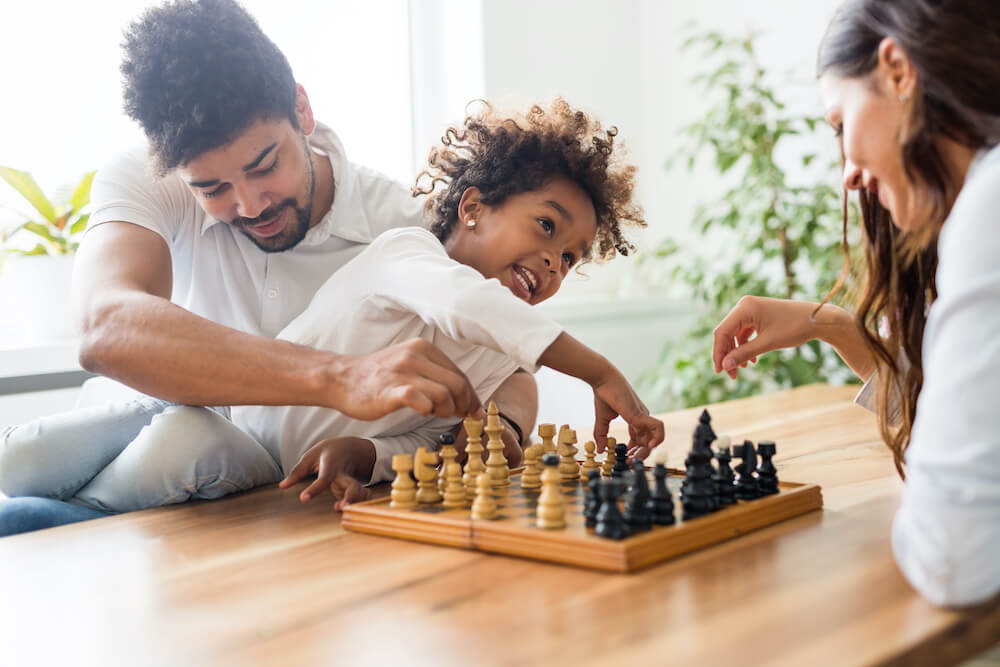
- 3 mins
7 Top Hobbies for Parents to Do With Kids

Extracurricular activities have become more prevalent in recent years, with various sports, music, and craft activities available for children of different ages. These activities hold many benefits. Gil-Madrana et al. (2021) mention how motor stimulation not only benefits a child’s physical development but also has a positive effect on cognitive and affective factors. For adolescents, Oberle et al. (2019) write that peer belonging significantly impacts their sense of peer belonging and therefore improves mental health in young people who participate in such activities. Whether you are a new parent or new to extracurricular activities, finding an activity suitable for your child can be pretty daunting.
Consider your child first. What interests them? If your child loves being active and enjoys playing sports, it would be good to look at different sporting activities offered in your area. One of the easiest ways to find out what is available is to listen to other parents or children. Parents often mention the activities their child attends, and kids tend to speak to one another about the activities they participate in. Usually, there would be team sports and individual ones to consider. Parents sometimes want to push their children to participate in a team sport. Still, suppose your child is not particularly fond of the idea. In that case, an individual sport could be just as beneficial as there would still be a social element involved, and training would usually be together as a group even if it is an individual activity.
When you know what is available, speak to your child. You could even have a look together online and chat about a sport that would suit them. Some clubs or teams are very competitive, while others focus more on the social aspect and having fun. There is no right or wrong – your child might prefer one to the other.
While sport involves a wide range of extramural activities for individuals, it might not be the best option if your child has little interest in being active. Classes to consider would be:
You might even be able to find classes where kids get together and learn about robotics and coding, other educational classes, or natural science. Don’t be afraid to try something new, even if it is not the same extracurricular activity many other kids do. For most of these activities, you would be able to find a group that would suit your child’s age and experience. Even if your child is a teenager, beginners groups are available to try a new activity.
For many parents who homeschool their children, social interaction with other children is a priority. Extracurricular activities provide an ideal opportunity for children to find an activity that they are interested in and to form part of a group environment to participate in these sessions. Some schools in the area may even have the option for homeschooled students to join their extracurricular activities. If not, it would be good to visit local clubs, groups or the library to find out what is available. Other parents could also be an excellent resource for learning what is available.
If your child is starting a new activity, regardless of what it is, there are usually some nervous feelings that go along with it. Another reality is that days can become quite busy if additional activities are added to the schedule. Be sure to make time to unwind, relax and meditate. Look at the many stories, mindfulness exercises, and songs relating to sport on the Moshi app! Did you know that Moshi has an entire sports collection, including Melena’s Wumpleton Tennis Tale and Bend It Like Dribbles? Listening to these stories could be encouraging and supportive and even help to get your child excited about the new activity they are about to try.
Children learn many skills by participating in extracurricular activities. It will benefit their motor- and cognitive development, but the social and emotional skills are valuable too. Learn how to compete, support teammates, and win and lose games while still having fun. These skills will benefit children throughout their lives. Look at Teaching Kids to Lose Gracefully to help you and your child get started.
Remember to encourage your child to have fun!
Gil-Madrona, P., Romero-Martínez, S. J., & Roz-Faraco, C. C. (2021). Extracurricular Physical Activities and the Condition of Being an Only Child as a Conditioning Factor in the Psychomotor Development of 5-Year-Old Children. Frontiers in pediatrics, 9, 684418.
Oberle, E., Ji, X. R., Guhn, M., Schonert-Reichl, K. A., & Gadermann, A. M. (2019). Benefits of Extracurricular Participation in Early Adolescence: Associations with Peer Belonging and Mental Health. Journal of youth and adolescence, 48(11), 2255–2270.